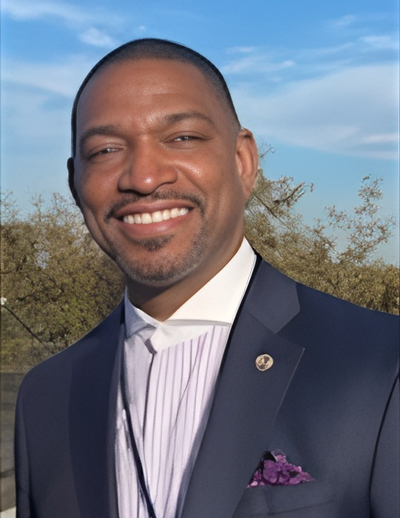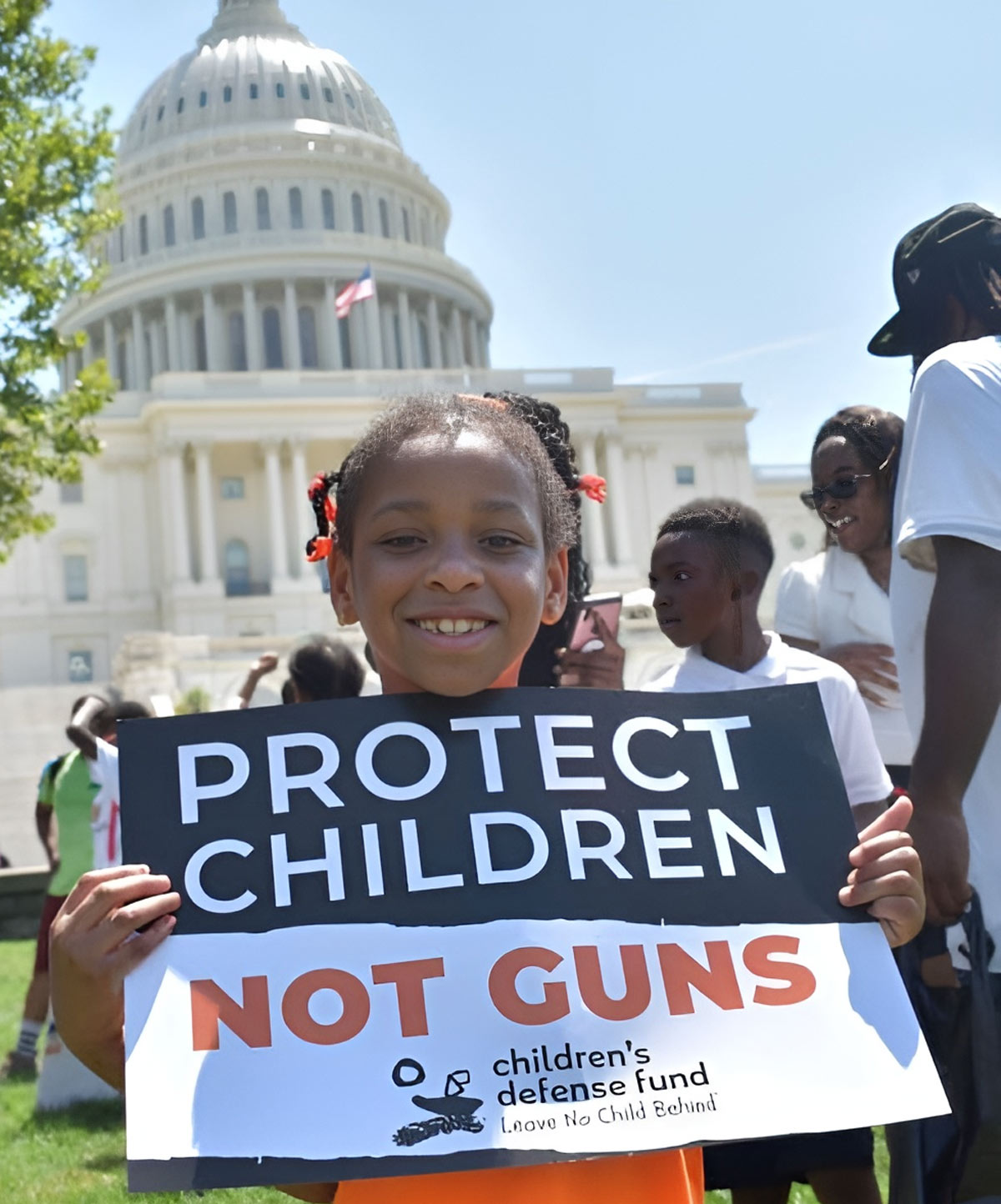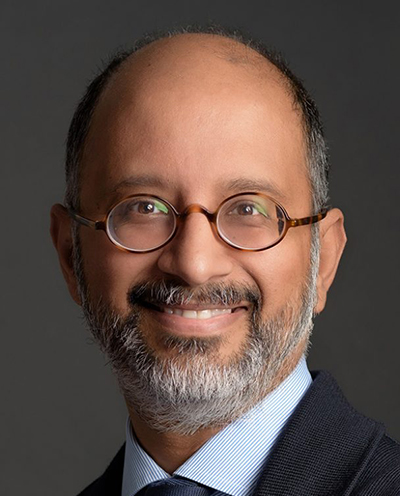


Photo of Starsky Wilson
While the 50th anniversary of The Children’s Defense Fund (CDF) and the 30th anniversary of its Freedom School were the primary occasion for the event on the Howard University campus, in November, this was no party or picnic. Rather, organizers launched two very important campaigns, affirming and contending that the rights, wellbeing, education, and holistic development of children and their families matter.
First, the nation’s leading child advocacy organization seeks national policy reform relating to children’s welfare. Second, its “Campaign for Joy” leverages the collective power of individual communities in the fight.
Marian Wright Edelman, well-known as a true drum major for justice and a preeminent defender of the rights and opportunities of children, founded the CDF in 1973. She led CDF for 45 years until she announced that she would work as President Emerita in the Office of Founder. Then, in 2020, CDF named Starsky Wilson president and CEO.
Wilson leads as an intellectually sharp and skilled organizer and administrator. A spiritual leader with keen insight, he senses a future that is going to require a new generation of freedom fighters.
What follows is our conversation for Message, edited for space and clarity.
MESSAGE: Let’s talk a little bit about strategy because you laid out a five-point plan for policy reform nationwide. What’s day one, phase one? How do we actually go about creating change, and what are some potential roadblocks and impediments that you know you’re going to face along the way?
WILSON: First we gotta declare and recruit – declare where it is we want to go. We want: (1) just and caring communities as environments where our kids grow up. We want to: (2) make sure that families are stable; that kids get to launch from a stable family, and they get to grow up into the promise that if they work hard, they can do better than their parents, family, and [have] economic mobility. We want to say that: (3) children get to be healthy, and whole, and get to heal. We want to say that: (4) education is for something; it’s for civic life and for meaningful work. And we want to say that: (5) early learning and development is a right for children. They don’t have to earn it from us.
The second thing we’ve got to do is to recruit people into the fight. You can’t have policy without politics – let’s be clear. But politics is not about partisanship; it’s about who gets what, when, where, and why. And so we believe this is what our children deserve.
So who do we recruit? Anyone who believes that children deserve these things. Then we begin to negotiate, in our communities. And I truly believe this: we don’t negotiate it on Capitol Hill. There’s a reason why I said we’ve got to theologize this in congregations. It’s because those are places where we actually have diverse perspectives, and we can start working out some of the particulars. And then we begin to cast that vision forward. Churches, community centers, Kingdom Hall, local schools, the Legion Hall; all of these are spaces where we can begin to come together and talk about what we think is right for our communities and (in some cases) what we think God wants for our children.
So now, everyone needs a few things. Everyone needs a spiritual home. Everyone needs a physical home. Everyone needs a political home. Who are your people who you can talk to about these things in these spaces? I also believe that everybody’s spiritual home needs a political home. Your congregation may not be (independently) the best place to get all your political views. You need to be in a wider context of faith communities who are wrestling with these issues together, and there are networks like that, and there are folks to help inform that. Whether it’s Message Magazine, or Sojourners, or Faith in Action, or The Gamaliel Network. These are all partners that we work with in faith and public life – folks who can help to inform and connect the theological and social visions in these faith traditions with actual opportunities to make them manifest in the name of Christ.
MESSAGE: How do you inspire and encourage a young leader who is leading in spaces where the political climate makes it difficult for them to do some of the things that the CDF promotes? promotes?
WILSON: Lead with literacy, and lead with leadership development for young adults. And lead with summer jobs. [CDF] Freedom Schools are all those things. For the scholars that are enrolled in the program, it’s literacy development that will outpace anything they could’ve done in summer school. We’ve got the facts on that. For leadership development for young people: If they want to keep communities safe during the summer, keep youth doing something positive during the summer, summer jobs, those servant leader intern roles are summer jobs. And continue to focus on how they are caring for young. Romans 8. – this is part of how I started my work with CDF. I was pastor of a church [and] leader of a local faith-based philanthropy who Mrs. Edelman told to go back to my community and rebuild the network of [CDF] Freedom Schools, and the first one was in my church.
MESSAGE: We are here celebrating 50 years. At 75 years, what will we be celebrating?
WILSON: Part of our moonshot vision for the next generation are things like, in 25 more years, we should have a lowered voting age, so that more young people have direct access to the ballot. And this is already happening in some places; a federal voting age that is more like 16 and less like 18. It’s been 50 years since we changed the federal voting age. When we did it, it made possible the candidacy of Shirley Chisolm, because young people have different perspectives on diversity and gender.
We’ll be celebrating that there no longer will be any juvenile detention centers and youth jails. We’ll be celebrating that the spotty network of early childcare providers has been organized into a universal system so that kindergarten and 5 years old is not when you begin to get public access to care, but you begin to get that at age 3, and even as early as 6 months.
We’ll begin to celebrate the fact that we have a universal child allowance. That what we saw in the pandemic where we said, “Hey, you have children. We know it costs something to take care of them and we know that children are [our] greatest treasure as a nation. We’re going to give you a monthly allowance to take care of them,” [is the norm].
We’re going to be celebrating that that is law here in the U.S., the way that it is in other English-speaking industrialized nations. And we’ll be celebrating that, finally, we have signed the 1989 U.N. Convention on the rights of the child. And we will be the only nation [on] the globe that has not done it.

Photo from childrendefense.org
MESSAGE: Let’s talk a little bit about strategy because you laid out a five-point plan for policy reform nationwide. What’s day one, phase one? How do we actually go about creating change, and what are some potential roadblocks and impediments that you know you’re going to face along the way?
WILSON: First we gotta declare and recruit – declare where it is we want to go. We want: (1) just and caring communities as environments where our kids grow up. We want to: (2) make sure that families are stable; that kids get to launch from a stable family, and they get to grow up into the promise that if they work hard, they can do better than their parents, family, and [have] economic mobility. We want to say that: (3) children get to be healthy, and whole, and get to heal. We want to say that: (4) education is for something; it’s for civic life and for meaningful work. And we want to say that: (5) early learning and development is a right for children. They don’t have to earn it from us.
The second thing we’ve got to do is to recruit people into the fight. You can’t have policy without politics – let’s be clear. But politics is not about partisanship; it’s about who gets what, when, where, and why. And so we believe this is what our children deserve.
So who do we recruit? Anyone who believes that children deserve these things. Then we begin to negotiate, in our communities. And I truly believe this: we don’t negotiate it on Capitol Hill. There’s a reason why I said we’ve got to theologize this in congregations. It’s because those are places where we actually have diverse perspectives, and we can start working out some of the particulars. And then we begin to cast that vision forward. Churches, community centers, Kingdom Hall, local schools, the Legion Hall; all of these are spaces where we can begin to come together and talk about what we think is right for our communities and (in some cases) what we think God wants for our children.
So now, everyone needs a few things. Everyone needs a spiritual home. Everyone needs a physical home. Everyone needs a political home. Who are your people who you can talk to about these things in these spaces? I also believe that everybody’s spiritual home needs a political home. Your congregation may not be (independently) the best place to get all your political views. You need to be in a wider context of faith communities who are wrestling with these issues together, and there are networks like that, and there are folks to help inform that. Whether it’s Message Magazine, or Sojourners, or Faith in Action, or The Gamaliel Network. These are all partners that we work with in faith and public life – folks who can help to inform and connect the theological and social visions in these faith traditions with actual opportunities to make them manifest in the name of Christ.
MESSAGE: How do you inspire and encourage a young leader who is leading in spaces where the political climate makes it difficult for them to do some of the things that the CDF promotes? promotes?
WILSON: Lead with literacy, and lead with leadership development for young adults. And lead with summer jobs. [CDF] Freedom Schools are all those things. For the scholars that are enrolled in the program, it’s literacy development that will outpace anything they could’ve done in summer school. We’ve got the facts on that. For leadership development for young people: If they want to keep communities safe during the summer, keep youth doing something positive during the summer, summer jobs, those servant leader intern roles are summer jobs. And continue to focus on how they are caring for young. Romans 8. – this is part of how I started my work with CDF. I was pastor of a church [and] leader of a local faith-based philanthropy who Mrs. Edelman told to go back to my community and rebuild the network of [CDF] Freedom Schools, and the first one was in my church.
MESSAGE: We are here celebrating 50 years. At 75 years, what will we be celebrating?
WILSON: Part of our moonshot vision for the next generation are things like, in 25 more years, we should have a lowered voting age, so that more young people have direct access to the ballot. And this is already happening in some places; a federal voting age that is more like 16 and less like 18. It’s been 50 years since we changed the federal voting age. When we did it, it made possible the candidacy of Shirley Chisolm, because young people have different perspectives on diversity and gender.
We’ll be celebrating that there no longer will be any juvenile detention centers and youth jails. We’ll be celebrating that the spotty network of early childcare providers has been organized into a universal system so that kindergarten and 5 years old is not when you begin to get public access to care, but you begin to get that at age 3, and even as early as 6 months.
We’ll begin to celebrate the fact that we have a universal child allowance. That what we saw in the pandemic where we said, “Hey, you have children. We know it costs something to take care of them and we know that children are [our] greatest treasure as a nation. We’re going to give you a monthly allowance to take care of them,” [is the norm].
We’re going to be celebrating that that is law here in the U.S., the way that it is in other English-speaking industrialized nations. And we’ll be celebrating that, finally, we have signed the 1989 U.N. Convention on the rights of the child. And we will be the only nation [on] the globe that has not done it.

![]() I think universal home visiting [should be implemented] where every newborn child is visited; not for the purpose of surveillance, not for the purpose of parental risk assessment, or child risk assessment, but from a strengths-based perspective. Does the new mom who’s scared out of her mind by this little infant…does the mom and dad have everything they need?
I think universal home visiting [should be implemented] where every newborn child is visited; not for the purpose of surveillance, not for the purpose of parental risk assessment, or child risk assessment, but from a strengths-based perspective. Does the new mom who’s scared out of her mind by this little infant…does the mom and dad have everything they need?
-Dr. Ramesh Raghavan, Professor of Social Work at New York University, author of Investing in Children’s Mental Health. Raghavan is among the army of scholars, practitioners, and care providers in league with CDF to bring hard data to shape policy and its lofty aims.
Photo by: NYU
![]() I think universal home visiting [should be implemented] where every newborn child is visited; not for the purpose of surveillance, not for the purpose of parental risk assessment, or child risk assessment, but from a strengths-based perspective. Does the new mom who’s scared out of her mind by this little infant…does the mom and dad have everything they need?
I think universal home visiting [should be implemented] where every newborn child is visited; not for the purpose of surveillance, not for the purpose of parental risk assessment, or child risk assessment, but from a strengths-based perspective. Does the new mom who’s scared out of her mind by this little infant…does the mom and dad have everything they need?

Photo by: NYU
-Dr. Ramesh Raghavan, Professor of Social Work at New York University, author of Investing in Children’s Mental Health. Raghavan is among the army of scholars, practitioners, and care providers in league with CDF to bring hard data to shape policy and its lofty aims.